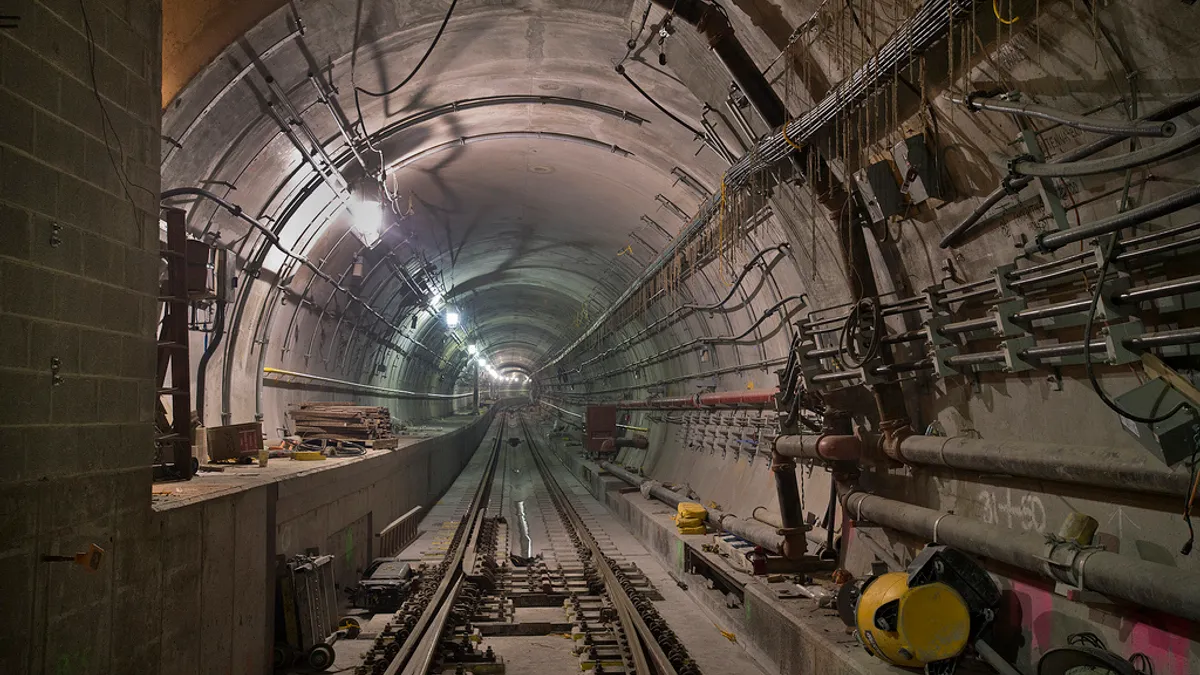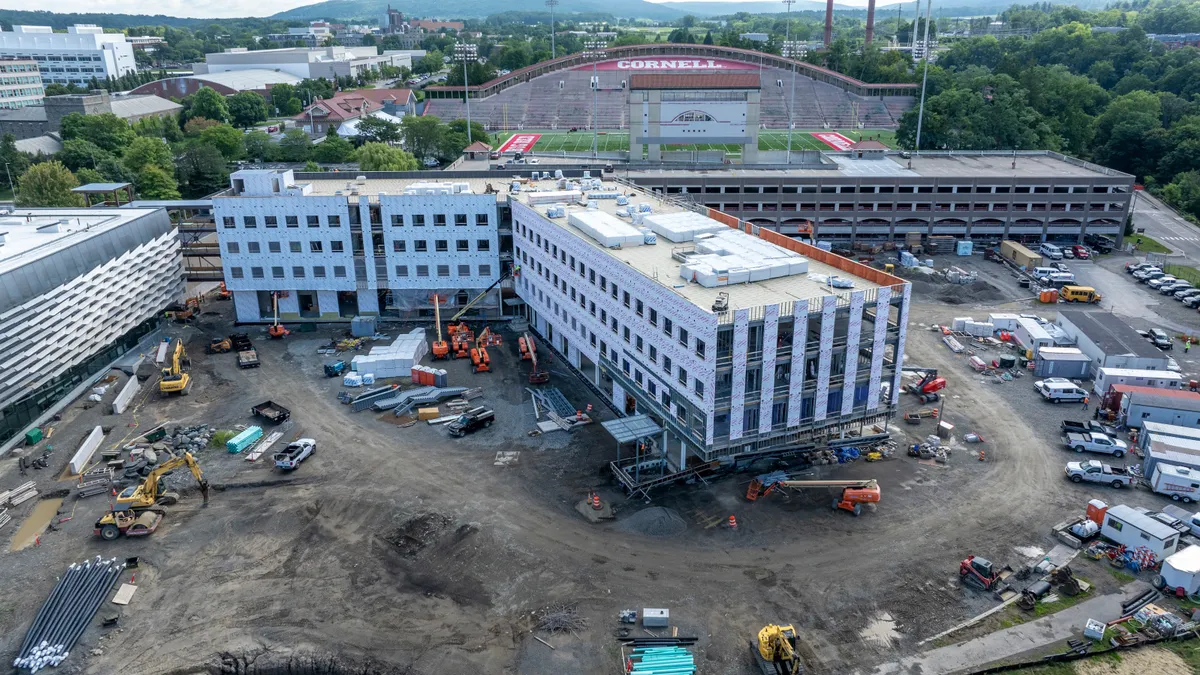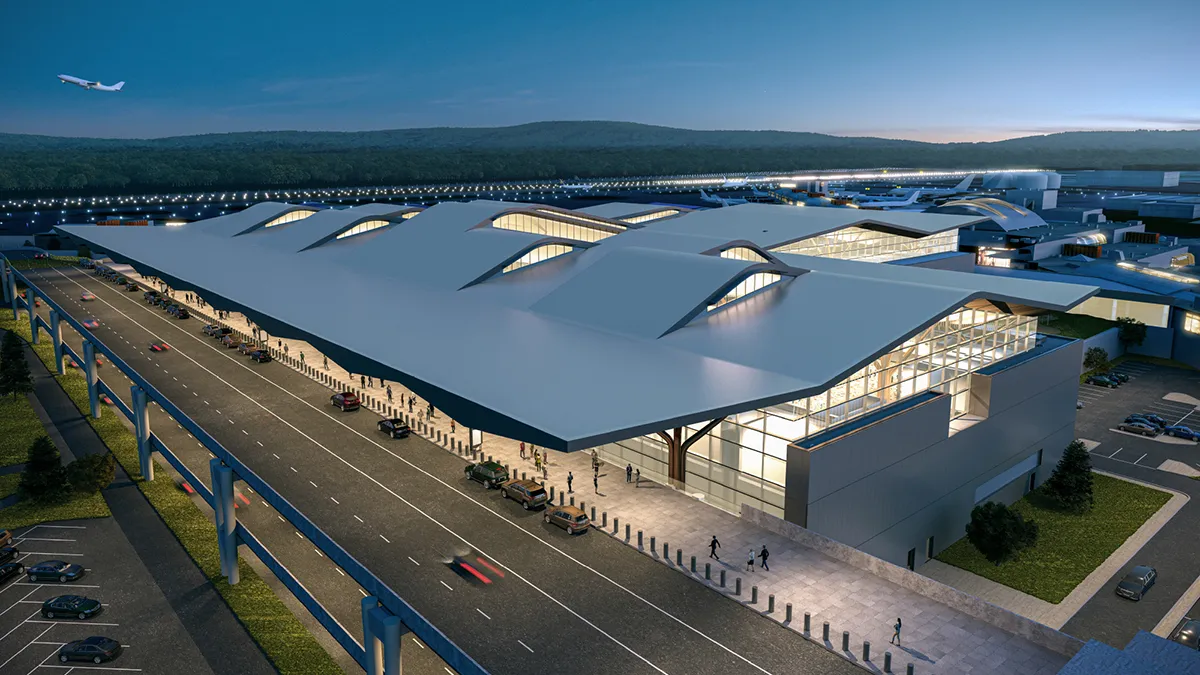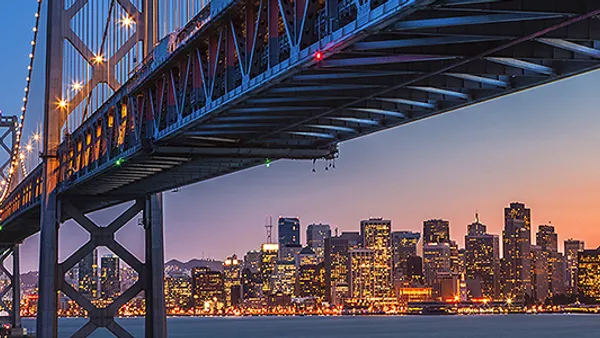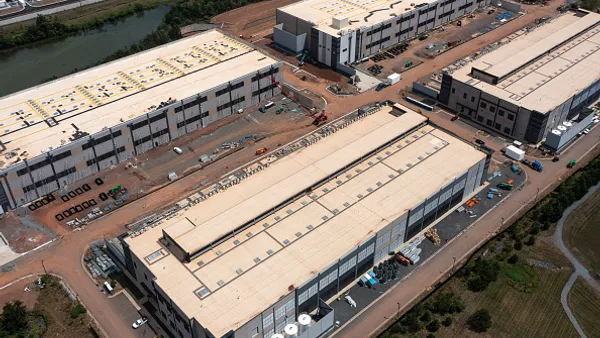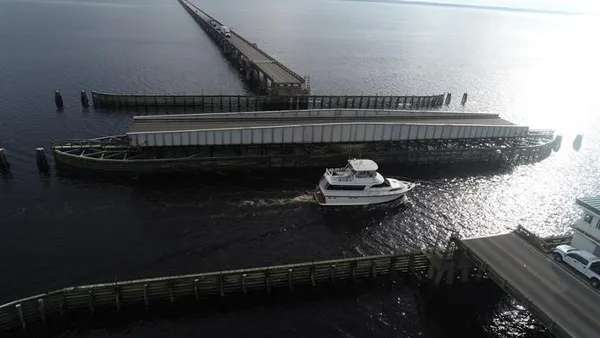Dive Brief:
- Under recent fire for the expensive and inefficient way it handles subway and rail infrastructure in New York City, the Metropolitan Transportation Authority has promised to cut costs and do away with some of the policies and procedures that bog those projects down, according to The Wall Street Journal.
- The authority needs $43 billion for the next 15 years' worth of construction projects, in addition to the $54 billion it needs to maintain its subway and bus systems through 2035. Commissioners at a recent board meeting said they can't ask the public to pay for the program if they cannot prove the authority is able to "spend that money wisely." According to agency officials, errors in past decision-making have led to skyrocketing costs and red tape. Some construction companies even include a 25% "MTA fee" in their contracts to make up for the authority's burdensome — and costly — processes.
- Commissioners said the authority could cut its construction timelines by 53% through procedural changes that did not require any new regulations. Authority officials reported that they have been revamping their procurement and construction management procedures during the last six months and that although they still have work to do, the changes that have already been made will increase competition, reduce costs and help to eliminate inefficiencies.
Dive Insight:
The MTA has been under pressure since it was revealed that New York City has the most expensive subway construction costs in the world. For example, the price tag for the East Side Access tunnel, which will connect the Long Island Rail Road to Grand Central Station in Manhattan, is currently at $3.5 billion per mile. San Francisco is also home to some of the world's highest infrastructure costs, with one of its major projects, a tunnel between the Salesforce Transit Center and a Caltrain station, expected to cost $3 billion per mile.
The most expensive rail and subway initiatives cost about six or seven times more than similar projects outside the U.S.
Policies and procedures are part of what drives the prices of these projects higher, but trade unions have also been labeled as contributors to the exorbitant costs. On one city subway project, trade unions were reportedly able to negotiate a base wage-and-benefits rate of more than $110 per hour and a weekend-overtime rate of $400. Politically-connected consulting firms have also reportedly been suspected of charging a premium for their work.


